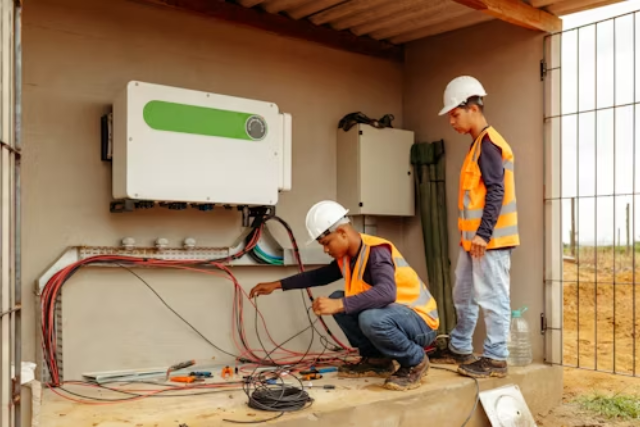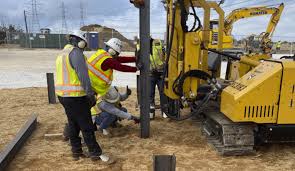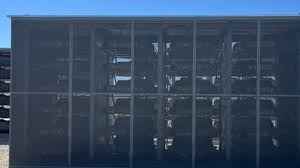
B2U Storage Solutions has broken ground on its third grid-scale storage facility in Texas, pushing forward its plan to expand repurposed electric vehicle battery technology deeper into the state’s fast-growing energy market.

Located in Bexar County, just east of San Antonio, the new 24 MWh facility — called the Bexar Corrilla site — will store energy using roughly 500 end-of-life EV battery packs installed across 21 specialized cabinets. The project uses B2U’s patented EPS (Energy Pack System) technology, which enables plug-and-play deployment of used EV batteries without costly remanufacturing.
The Bexar Corrilla site is expected to be fully operational and trading power with the Texas grid by the end of 2025. It will connect directly to CPS Energy’s local distribution system to help support peak demand and grid stability for one of the state’s fastest-growing metro areas.
“Expanding our footprint into Texas is a significant strategic milestone for B2U as well as a testament to the excellence and scalability of our technology platform,” said Freeman Hall, CEO of B2U. “As EV pack repurposing gains acceptance as a preferred source of batteries for the large and high-growth grid and industrial energy storage markets, B2U will continue to lead by deploying our bankable, safe and profitable technology to the grid, and expanding to industrial customers.”
B2U has already deployed over 40 MWh of similar repurposed battery storage capacity into the California grid, where its systems integrate with solar installations to capture excess renewable generation and dispatch it when needed. The Texas project marks a major step in its plan to scale operations across the U.S.

In addition to the Bexar Corrilla site, B2U says it plans to develop three more grid storage facilities in Texas over the next year, bringing the company’s total deployment in the state to about 100 MWh by late 2026. Combined with its California portfolio, B2U expects to have more than 150 MWh of repurposed EV battery capacity online by mid-2026.
The company’s EPS platform is certified to UL 9540, ensuring it meets key safety standards for large-scale battery energy storage. Using AI and proprietary software, B2U’s systems can autonomously bid into wholesale markets and provide grid services like frequency response and energy shifting, operating around the clock to help stabilize supply.
Repurposed EV batteries are emerging as a promising solution to meet growing global demand for grid-scale storage. A December 2024 report from IDTechEx forecasts more than 200 GWh of global grid storage capacity will come from second-life EV batteries by 2035 — a trend driven by the surging number of electric vehicles expected to reach end-of-life in the next decade.
By maximizing the useful lifespan of EV batteries before recycling, B2U’s approach provides a cost-effective way to expand storage capacity while diverting battery packs from waste streams prematurely.
As Texas’ grid faces mounting challenges from population growth, extreme weather, and fluctuating renewable generation, B2U’s expansion highlights how second-life battery tech can help keep the lights on — and keep energy costs in check — without building brand-new battery packs from scratch.
Originally reported by T&D World.